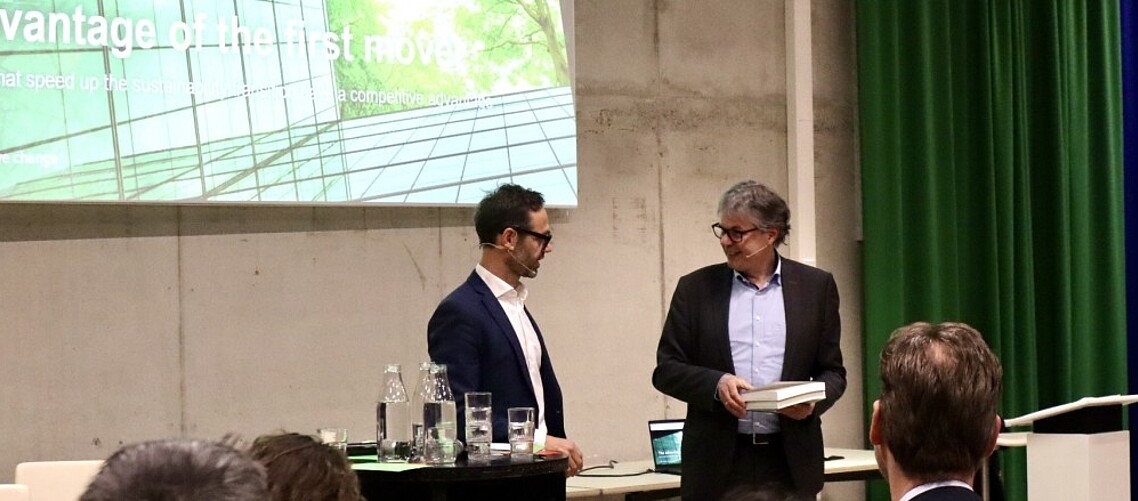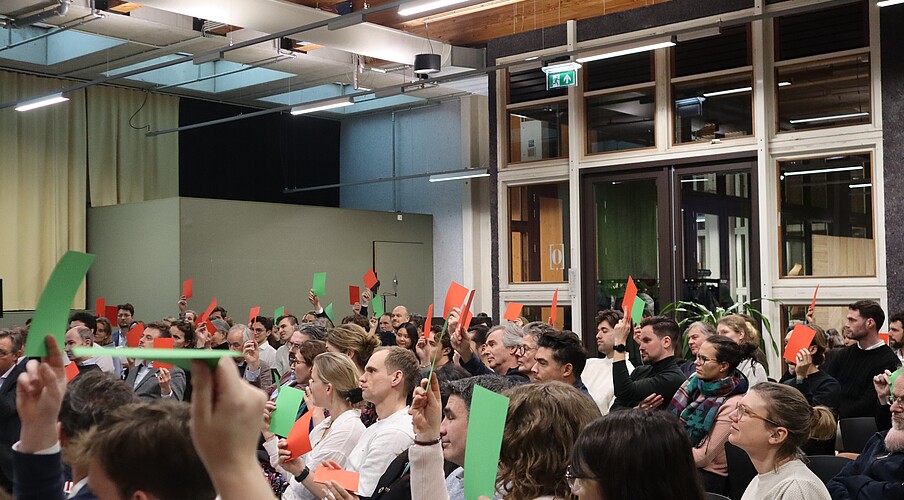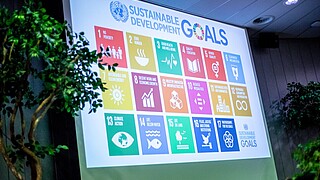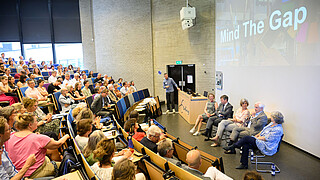The 150 attendees ranged from recent university graduates to consultants and finance experts, of which most work in the field of finance and sustainability. During the event, which was moderated by investigative journalist and author Jeroen Smit, RSM Professor Dirk Schoenmaker presented his Integrated Value Model, which promotes a long-term perspective on financial decision-making and highlights the importance of correctly timing the sustainability transition. The model provided the basis for a recent study about corporate decision-making and promoting sustainable business through finance by the Platform and the Impact Institute, with contributions by ABN AMRO, Deloitte, PGGM, Robeco and Triodos.
In addition to the presentation, four panellists from key institutions with diverse backgrounds took part in a dynamic discussion on the topic of the sustainable transition. The panellists were Danny Benima (CFO of Stedin), Julia van Boven (lean impact nation/sustainability at ABN AMRO), Annemiek Dresen (director of NewBees INC) and Steven Gudde (director impact at Olympia). The panel held an interesting, thought-provoking and interactive dialogue about the role of CFOs in the sustainability transition, as well as the influence of regulation and corporate structure. They also stressed the need to include social value and environment value in financial decision-making.
Topics discussed included:
- Organisations that respond too late to important social transitions are not viable in the long term – as Kodak’s example shows – and this is even more relevant for the sustainability challenge.
- What kind of companies can switch to clean energy, optimise their production chains or reap the benefits of the sustainability transition in good time?
- Can frontrunners win back the costs of being out in front, or it is better to be a follower?
Companies that are ahead of this curve do have a competitive advantage over their peers. Arjan Udding (director at Impact Institute) concluded the event by speaking about the importance of impact valuation as a strategic and leadership issue and how it plays a fundamental role in positioning a company in the sustainable transition.
The Erasmus Platform for Sustainable Value Creation
There is a growing need for new methods to incorporate sustainability into asset pricing and valuation, and corporate governance is making a transition towards long-term value creation as the ultimate goal for corporates. The Erasmus Platform for Sustainable Value Creation develops new insights through research and education in close collaboration with leading sustainable finance players in the industry and academia. The platform brings together academic faculty research, PhD, master and bachelor students, MBAs and executive education, NGOs and professionals in the financial industry.



